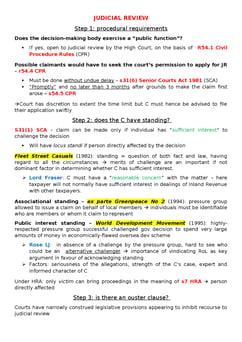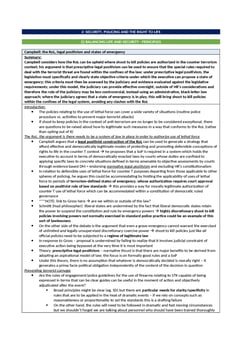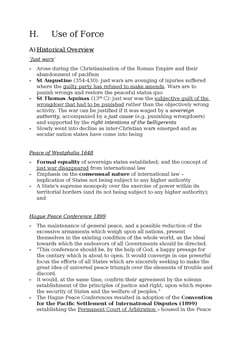Adler v George [1964] 2 Q.B. 7; [1964] 2 W.L.R. 542
Judgement for the case Adler v George
Table Of Contents
KEY POINTS
The Official Secrets Act of 1920 (10 & 11 Geo. 5, c. 75) deals with national security and classified information offences. Section 3 focuses on obstruction, especially in or near prohibited places and sensitive locations for national security.
-
Legal interpretation is vital in constructing statutes to avoid absurdity or inconvenience. This is crucial for obstruction offences under the Act, as courts work to prevent unintended consequences.
A key debate involves interpreting "in the vicinity of," questioning whether it strictly refers to proximity or broadly includes activities within the prohibited place.
Courts grapple with reading the phrase as "in or in the vicinity of," underscoring the need for precise language in legal statutes to prevent ambiguity and ensure effective enforcement.
FACTS
Frank Adler (‘The Defendant’), having gained access to a Royal Air Force station recognised as a prohibited place under the Official Secrets Act of 1920, was physically situated within the station's boundaries when he obstructed a member of Her Majesty's forces engaged in security duties related to the station.
The charge against him alleged that, within the vicinity of a prohibited place, he obstructed a member of Her Majesty's forces involved in security duties, contravening section 3 of the Act of 1920.
The defendant argued that since he was inside the prohibited place, the charge of being in the vicinity of the prohibited place did not apply to him.
Nevertheless, he was convicted. The appeal process was initiated after that.
JUDGEMENT
The appeal was dismissed.
The judgment held that, upon properly interpreting section 3 of the Official Secrets Act 1920, the phrase "in the vicinity of" was read as "in or in the vicinity of."
Consequently, the defendant, who had been physically situated within the prohibited place, was deemed to have committed the offence as charged.
COMMENTARY
-
The case of Frank Adler, known as 'The Defendant,' revolves around his unauthorised entry into a Royal Air Force station designated as a prohibited place under the Official Secrets Act of 1920.
During this trespass, he obstructed a member of Her Majesty's forces engaged in security duties at the station, leading to charges under section 3 of the Act.
The key point of contention emerged when Adler argued that, physically inside the prohibited place, the charge of obstructing in the vicinity did not apply to him.
Despite his argument, he was convicted, prompting the initiation of an appeal.
-
The dismissal of the appeal reinforced the court's interpretation of section 3, which deemed the phrase "in the vicinity of" to include being "in or in the vicinity of."
This ruling, in turn, affirmed Adler's commission of the offence while physically situated within the prohibited place.
The case underscores the significance of precise legal language, as the court's interpretation influenced the outcome and upheld the intention of the Official Secrets Act.
The legal proceedings exemplify the delicate balance between the rights of individuals and the necessity to safeguard national security, as enshrined in legislation like the Official Secrets Act of 1920.
For Further Study on Adler v George

Constitutional Law notes fully updated for recent exams at Oxford an...
Need instant answers? Our AI exam tutor is here to help.
Ask questions 🙋 Get answers 📔 It's simple 👁️👄👁️
Our AI is educated by the highest scoring students across all subjects and schools. Join hundreds of your peers today.
Get StartedSimilar Cases
Related Product Samples
These product samples contain the same concepts we cover in this case.


